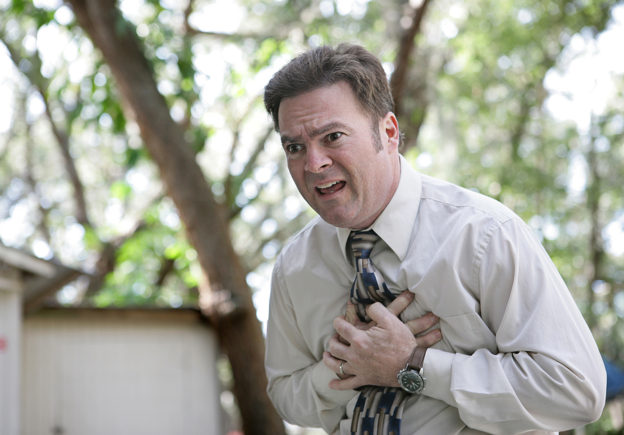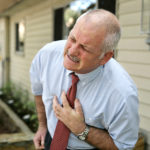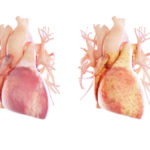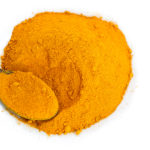By David Blyweiss, M.D., Advanced Natural Wellness
September 8, 2021
I love Sunday afternoons. I’ve got all of my weekend errands and chores out of the way. The dishes are washed, the sheets are clean and I can finally settle in and just relax with a good book.
We all have moments like these. We feel good. We’re relaxed and happy.
But what happens when you’re having one of these comfortable moments – or any other kind of moment – and suddenly feel a weird flutter in your chest?
Your heartbeat feels odd, like it is skipping a beat. You wonder if it’s a heart attack. Should you call 911?
Well, unless you have other symptoms, the chances are more likely that it’s an arrythmia of some sort. These occasionally cause weird flutters, stutters or palpitations in the chest.
The two most common types are premature ventricular contractions (PVCs) and atrial fibrillation (AFib).
Open your arteries, improve blood flow for a new health miracle...
Did you know your circulatory system has over 60,000 miles of arteries, veins and other blood vessels, if stretched end to end?
But as you age, your blood vessels undergo changes, which may cause them to stiffen, thicken and get clogged.
GOOD NEWS! Doctors have now identified a “Miracle Molecule” inside your arteries that helps OPEN your arteries and IMPROVE blood flow.
It’s what Dr. Valentin Fuster calls it, "One of the most important discoveries in the history of cardiovascular medicine."To you, that means...
- Healthy blood pressure
- Sharper mind and memory
- Skyrocketing energy and muscular strength
- Increased pleasure and passion in the bedroom
- Improved circulation to every cell and organ in your body
Go here to discover a new natural way to significantly boost the levels of this miracle molecule in YOUR body NOW!
You’ll see more PVCs than atrial fibrillation. It’s basically an extra beat that comes early, then the next beat is stronger than normal. So if a normal rhythm is thump, thump, thump, thump, then a PVC might feel like more of a thump-thump, THUMP, thump.
It might feel like you skipped a heartbeat, make you lighted headed or even give you chest pain. The older you get the more PVCs you get by definition.
Causes of PVCs can vary. Stress and anxiety can trigger them. So can too much caffeine, alcohol and certain medications, especially antihistamines. Or it could be an electrolyte imbalance, such as low potassium and magnesium combined with high calcium.
In a healthy person, PVCs generally aren’t a cause for concern. But if you have chronic extra beats or chronic fluttering, or an existing heart condition, you need to go see a cardiologist and address the underlying issue.
What Else Causes a Fluttering Heart?
Then, of course, there is atrial fibrillation. This is an abnormal rhythm caused by fast and erratic electrical impulses. When this occurs, you can’t move blood into the ventricles. This is dangerous, because blood movement slows down, so it can pool and forms clots.
Some people have no symptoms and are unaware they have this condition. It’s often not discovered until a physical exam.
In other people, it can produce a variety of heart palpitations. The heart might feel like it’s pounding, beating too fast, beating irregularly or fluttering. It can last a few seconds or a few minutes. Anything that is “irregularly irregular” is atrial fibrillation. These sensations come and go.
If it becomes a common occurrence, you need to do something about it. Sometimes it’s as simple as correcting an electrolyte imbalance.
Are You Suffering From...
- Love handles and a pot belly
- Romance that isn't what it used to
- Forgetfulness and inattention
- Low (or no) strength and endurance
- A sex drive that's shifted into neutral...or worse
If so...you may have Mature Male Burnout. Click here to discover more about this unique condition and what you can do about it.
Still, your doc will classically place you on a blood thinner to avoid blood clots. I don’t necessarily agree with that. Natural remedies, like taking your fish oil and baby aspirin and natural blood thinners such as turmeric, garlic, capsaicin and ginger, would make clotting issues very unlikely.
And what does it mean if you have rapid or irregular heartbeats along with other symptoms?
It could be a sign of heart failure.
Some of the symptoms of heart failure include shortness of breath during activity or while resting, or if you breathe better sitting up. Low grade coughing that produces a whiteish or pinkish mucous indicates you’re getting fluid build-up in the lungs. If your feet, ankles are belly start swelling that’s a sign that fluid is leaking into them, too.
One of the signs you might notice first is that suddenly your shoes are suddenly too tight. (And you know your feet haven’t changed in size in years!)
If you’re having any sort of palpitations, if your chest doesn’t feel right, if you’re experiencing a chronic cough or holding onto extra fluid, you’ll want to visit your cardiologist to identify the source of the symptoms.
When to call 911
Heart attacks can be tricky to self-diagnose.
If you’re a male, you’re more likely to have chest pain than women. It’s obvious that you’re having a heart attack.
But that doesn’t mean all men have chest pain. A small number – about one out of ten – don’t. And if you’re a woman, it’s important to know that around a third of all women experiencing a heart attack don’t have any chest pains, either.
So what does a heart attack feel like when you don’t have chest pain or pressure?
Both men and women, but especially women, may develop sweating, fatigue or nausea. You might experience lower chest discomfort that feels more like heartburn. Shortness of breath and lightheadedness can also occur. And it wouldn’t be uncommon to develop arm, back, neck or jaw pain.
Unfortunately, women don’t always seek treatment because they don’t feel like they have that elephant sitting on their chest. And when they do seek treatment, many ER docs just don’t see the symptoms pointing to a heart attack. So heart attacks are somewhat sexist.
If you suddenly start to experience ANY of these symptoms, together or individually, it’s urgent that you call 911. Then, chew two or three aspirin as well as you can and flush them down with a glass of water.
Don’t wait! Your life depends on quick action.
SOURCES:
Farzam K, Richards JR. Premature Ventricular Contraction. [Updated 2021 Aug 12]. In: StatPearls [Internet]. Treasure Island (FL): StatPearls Publishing; 2021 Jan.
DiNicolantonio JJ, OKeefe JThe benefits of marine omega-3s for preventing arrhythmias. Open Heart. 2020;7:e000904.
Kim DC, Ku SK, Bae JS. Anticoagulant activities of curcumin and its derivative. BMB Rep. 2012 Apr;45(4):221-6.
Hahemi SA, Ghorbanoghli S, Manouchehri AA, Hatkehlouei MB. Pharmacological effect of Allium sativum on coagulation, blood pressure, diabetic nephropathy, neurological disorders, spermatogenesis, antibacterial effects[J]. AIMS Agriculture and Food. 2019, 4(2): 386-398.
Guntupalli, Vindhya. (2018). A Scientific review on clot dissolving activity of cayenne pepper. International Journal of Current Advanced Research. 2018 Mar;7(3B): 10572-10574.







